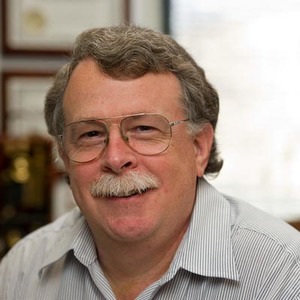Malcolm J. Fraser Jr.

Rev. Julius A. Nieuwland, CSC, Professor of Biological Sciences, Department of Biological Sciences
Phone: 574-631-6209
Office: 214 Galvin Life Sciences Center
Recent developments in our understanding of the underlying biochemical processes that lead to the development of tissue-specific cells and organs have been facilitated by a University of Notre Dame proprietary technology discovered in the laboratory of Malcolm J. Fraser Jr. This technology, a mobile DNA vector called piggyBac, allows researchers to reprogram adult skin or adipose(fat) tissues into cells that can become virtually any tissue in the human body, including liver and neural tissues.
The Mammalian Induced Pluripotent Stem Cell Consortium at UND is composed of researchers from both industry and academics whose focus is in advancing the development of this technology as a practical alternative to embryonic stem cells for the treatment of human diseases. Current research efforts are directed towards developing humanized mouse and rat models for human viral diseases, and developing practical treatments for these disease through the use of iPS. Working in conjunction with the Eck Institute of Global Health and the Center for Rare and Neglected Diseases our intent is to focus on developing models for diseases of particular significance for those research efforts.
Hepatitis C:
Approximately 270-300 million people are infected with hepatitis C worldwide, with HCV being the leading cause of chronic liver disease in the USA, and there are at present no easy ways to deal with these infections. One current avenue of research involves developing humanized mouse and rat models for hepatitis C virus utilizing iPC from human adipocytes to create human livers in SCID (Severe Compromised Immunodeficient) mice and rats. With these models we will be able to advance transgenic iPS approaches towards effecting a cure for this disease.
Neimann-Pick Type C:
We also have initiated research on the advancement of iPS technologies for the treatment of Neimann-Pick disorders, a particular focus of the Center for Rare and Neglected Diseases. Neimann-Pick type C disease is a pan-ethnic, autosomal recessive disorder with an estimated frequency of about 1 in 105 live births. Symptoms occur as early as a few months of age to as late as early adulthood. In the child onset form, delayed motor development and hyptonia start between 1 and 2 years, with most patients dying before the age of 5. Currently, there are no effective treatments for NPC disease patients. Gene therapy using iPS to induce neuronal stem cells from adipose tissues is currently considered a likely treatment for NPCdiseases and is the particular avenue of research we are interested in advancing as part of the Consortium.
An industry member of the consortium, Transposagen Biopharmaceuticals, has generously donated their proprietary SCID rat as a platform for the development of disease models purpose and is interested in exploiting the piggyBac technology for the development of many disease models. Along with the already established SCID mouse model, we have a powerful combination of technologies that will ultimately be valuable in developing cures.
Would you like to support Prof. Fraser’s Research?